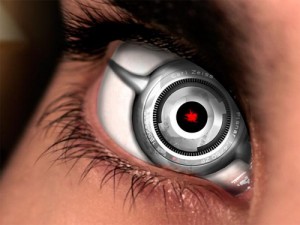It always gives a high when we see progress in any form, maybe a technological advancement or perhaps watching our roads getting decongested because of the recent flyover. Micro-chips are everywhere today, and if they are not, let’s just bet that they are looking to get into everything. From home appliances, cars, and mobile to even bookings holidays are all ‘micro-processed’! What are not are probably your apparels, sunglasses, diet, or maybe your Armani fragrance! Now imagine consuming nanobots (cell-sized robots) that have programmable body sculpting software capable of changing contours of your body as per requirement. And consider the next generation of cameras that can be fitted onto your eye so you don’t have to carry it around and can click a picture at blink of an eye! There can be no doubt about the fact that humans are progressing and fast. At the same time, what is worrying is that it’s the same momentum that’s slowly turning humans into semi mechanized humanoids.
Working as a brand manager for a technology firm can get really challenging and exciting in this era, especially in the internet domain. The momentum right now is to ride with the technology without compromising on the human element. It is true that there has been a tremendous upsurge in the number people looking to book holidays through the internet. It is also true that the internet is the most holistic source of information on this planet. But there is a reason why we still need to have kiosks, stores or offline presence. The human element is still the single most important factor to run any business and that is one of prime reasons why we plan to have offices throughout India.
Primarily humanity refers to businesses recognizing the value of serving a range of economic strata and responding to the global nature of the economy. However, in the internet trade, it is equally important to have a human face. Very often, a simple gesture such as a smile can have an extraordinary impact on a customer. A human voice, apart from lending credibility to information can also act like an encyclopedia and lend vital inputs to a query. To make this more effective, we now have region specific travel executives. Thus, a person, say travelling from Kolkata to Kerala, will inevitably get connected to an executive who is handling Kerala enquiries only. Now let’s quickly do a demo run. A person enquiring about a Kerala vacation has already found out enough about Kerala from the internet and he wants to have a customized holiday booked. The Travel Executive does as required and while doing so, finds out that the client has booked VIP seats for witnessing the famous snake boat race. So he promptly informs the client that the VIP seats are at the edge of the river and just after the boat race, the audience rush to waters to greet the oarsmen. This would create chaos and so this event is best seen from back rows as compared to the front. The client is pleased on hearing this and makes a short visit to the office to collect some more vital info, from our special executives. This is the power of the ‘human touch’.
Most of our repeat customers are not because of how the site works or the vast available information, but because of the single most important factor – the human touch. Global business need to realize that as we are drifting away from ‘manned interactions’ we are also losing out on key specifics and behavioral instincts. All I know is, no matter how powerful a camera gets, we would still need an eye to capture an image. No matter how easy communication gets, we would still need a heart to connect. We truly are at the dawn of a mechanized civilization, but it is imperative to exercise the human emotion in all practices, in all countenance.
